AI DRILLING SCENARIOS
Chevron
Jordan designed a highly sophisticated AI-enabled tool for oil engineering experts. The tool leverages user inputs, machine learning, and algorithms to optimize drilling conditions, fracking, and production schedules to plan roadmap scenarios for oil operations for the next 50 years of activity
Each scenario integrates key economic factors and generates outputs like drilling schedules, predictive economic and production forecasts, event-labeled maps, and impact assessments for networked facilities
Engineers can review, refine, and collaborate on scenarios before sharing them with executives, significantly reducing budget and decision approval time from months to 2 weeks; resulting in potential of billions of savings (over 50 years) due to the previous erroneous planning process
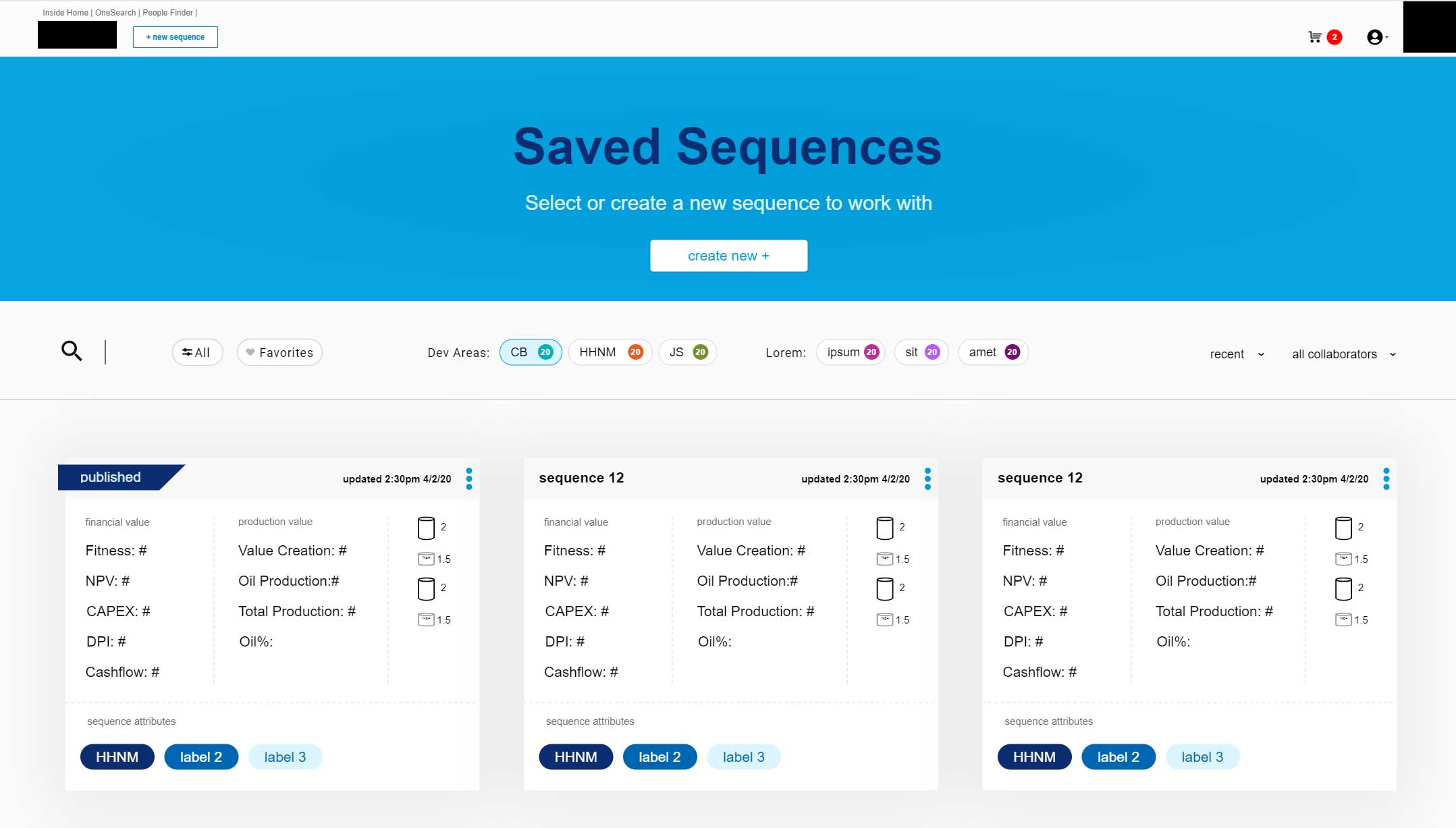
Facility Spend Savings
Worker Time
UX and Development Efficiencies
SolutionS and Methods
- Stakeholder interviews
- Needs to features analysis
- Feature Storymap creation
- Super Hi-Fi Prototyping
- Feature storywriting
- Remote User Testing
THE STRATEGIC DESIGN PATH
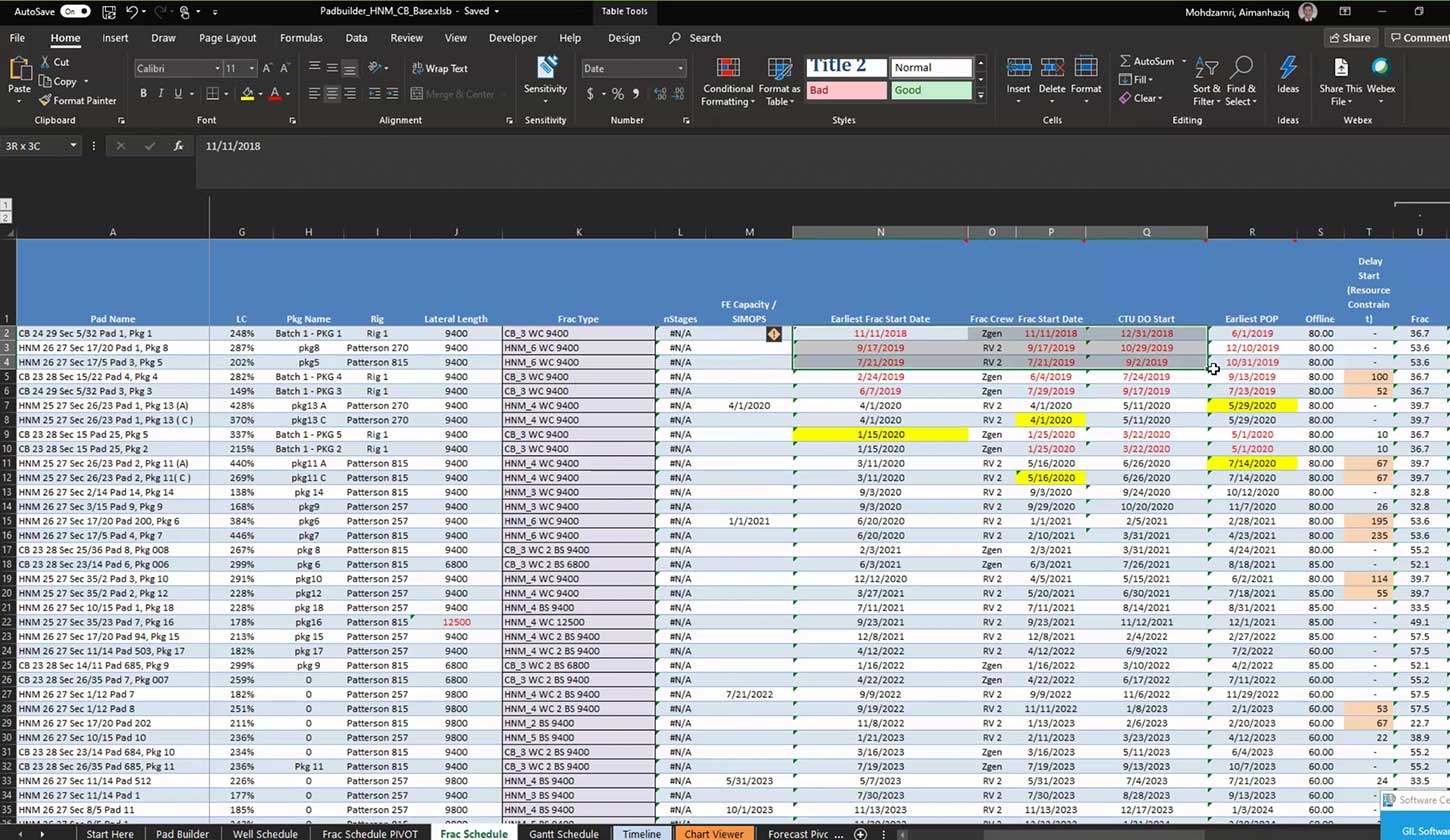
Engineers had been leveraging outdated, legacy scheduling planning and operational methods for oil production. After educating himself on nuances of this company and the industry at large, Jordan conducted in depth stakeholder interviews, documented comprehensive system and interface requirements, and began initial sketches of the design in workshops
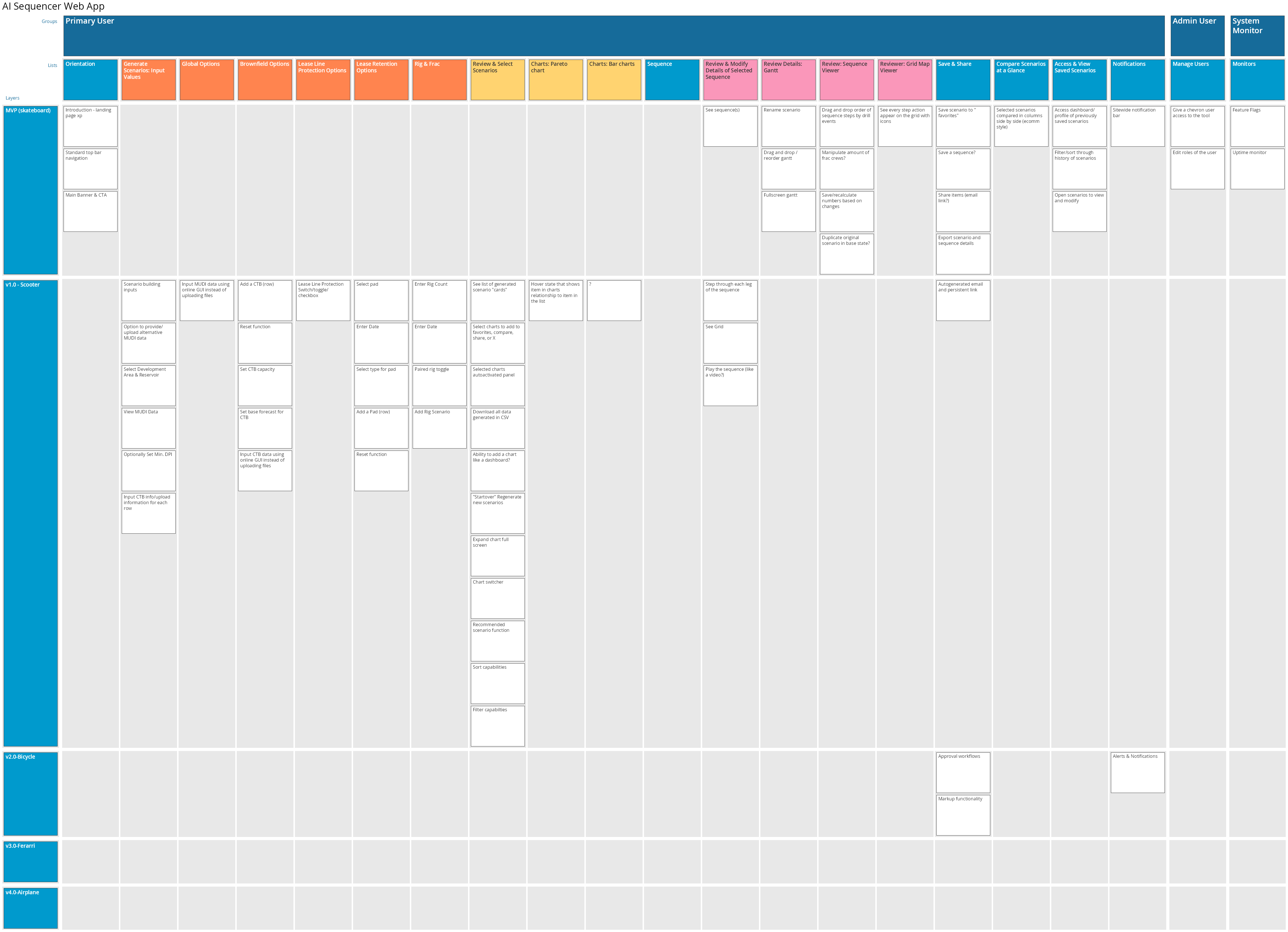
This stage was approached through story driven, product development. Once Jordan had an
understanding of the needs and had identified personas, he created a narrative flow by using a feature story map. The map was then used to breakdown jobs into component parts in order to transform them into user stories which were handed off to the development team.

After working through the requirements and featuresets, Jordan dove into designing out the flows of the system, the information architecture and other critical flows
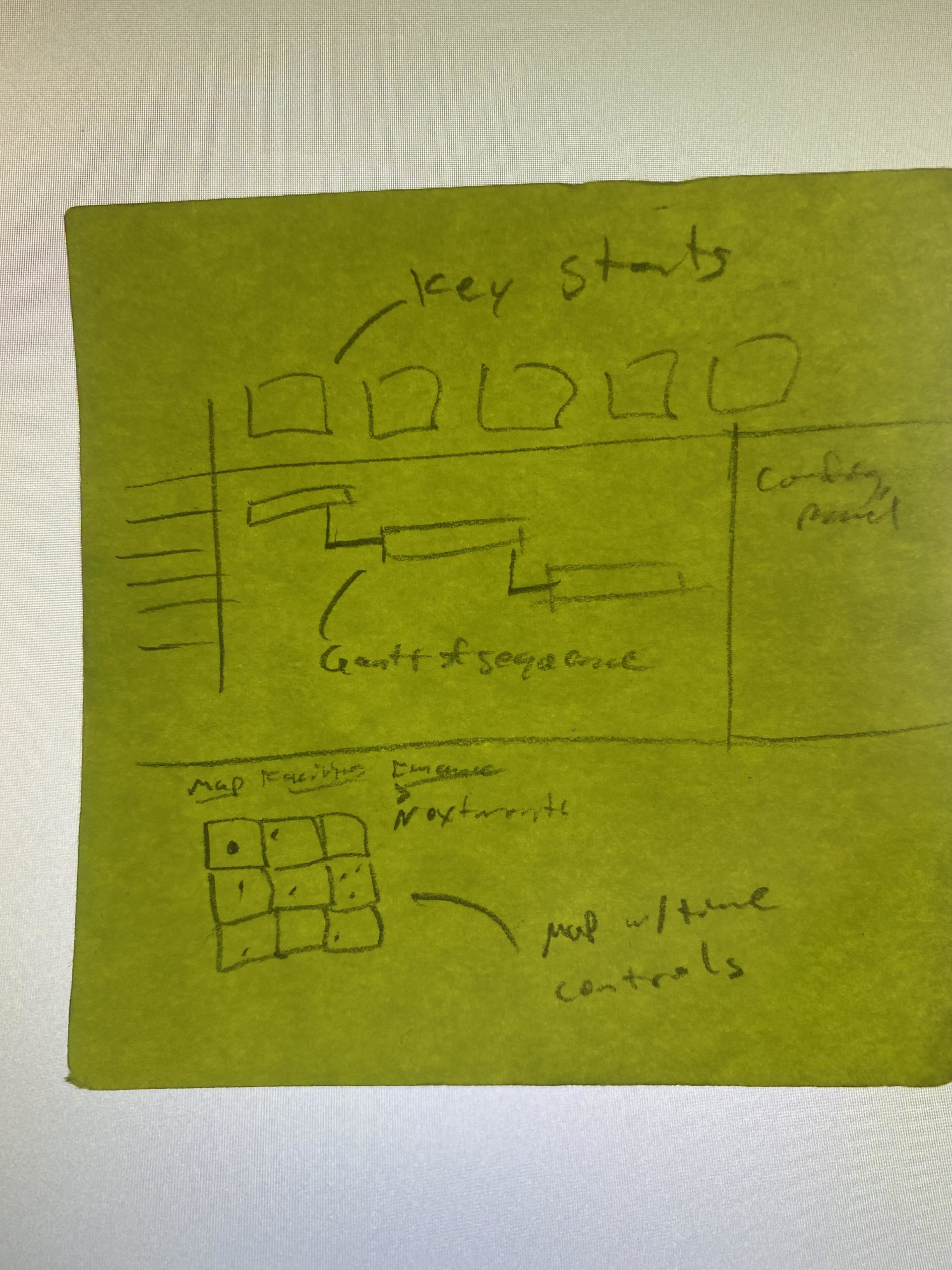
Nothing beats, pencil and paper to get the rough ideas out. Stickies like this were used often throughout the process to quickly communicate the solutions
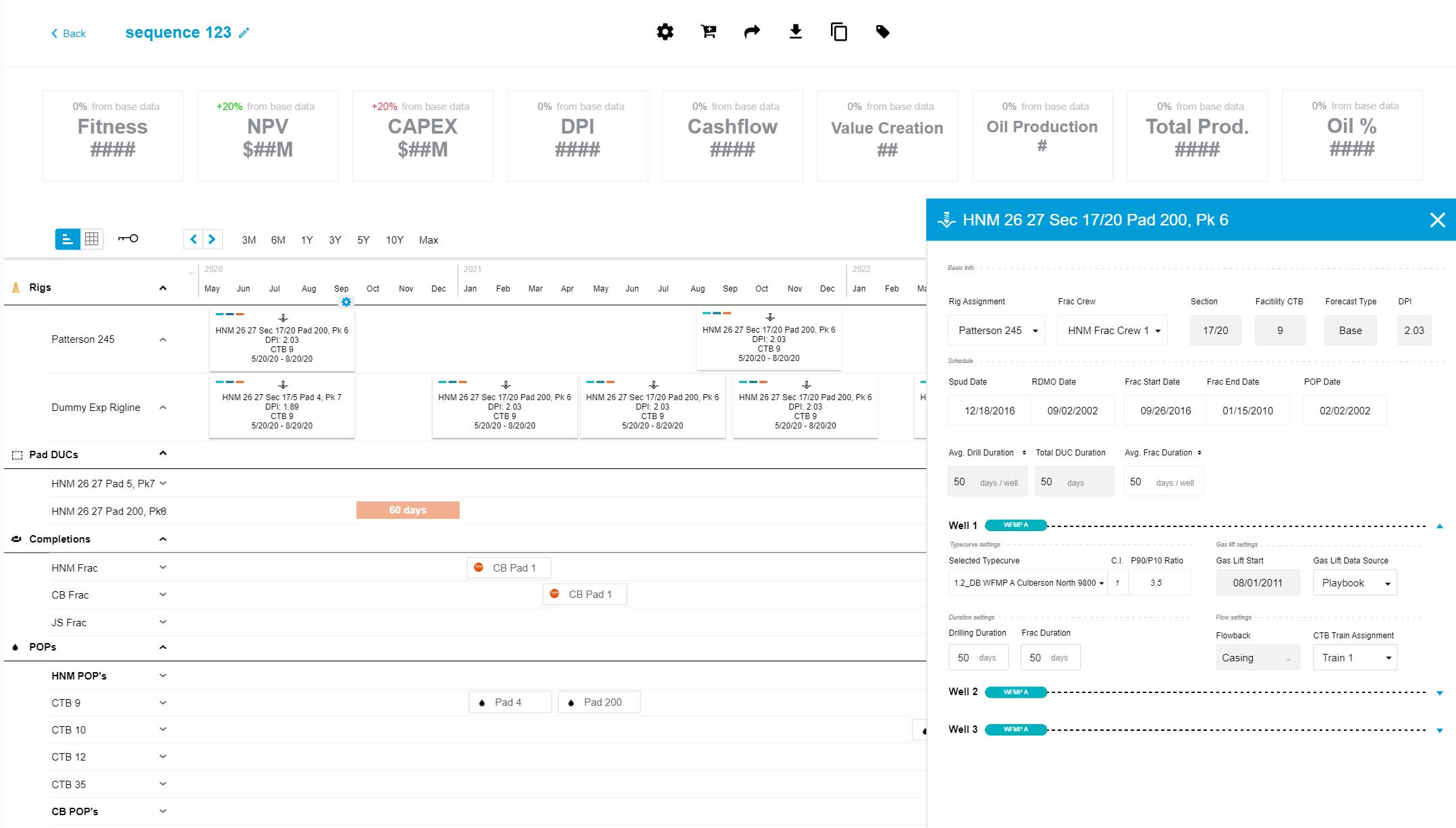
Via many iterations and collaborative sessions, Jordan directed teams to solution prototypes that simulated the experience. Then working with development, the overall team brought the tool to life and took it live. Realizing enormously impactful gains, taking a many months process fraught with errors and reimagining it into a few days or weeks process all while introducing a new more innovative hyper-useful way of working online